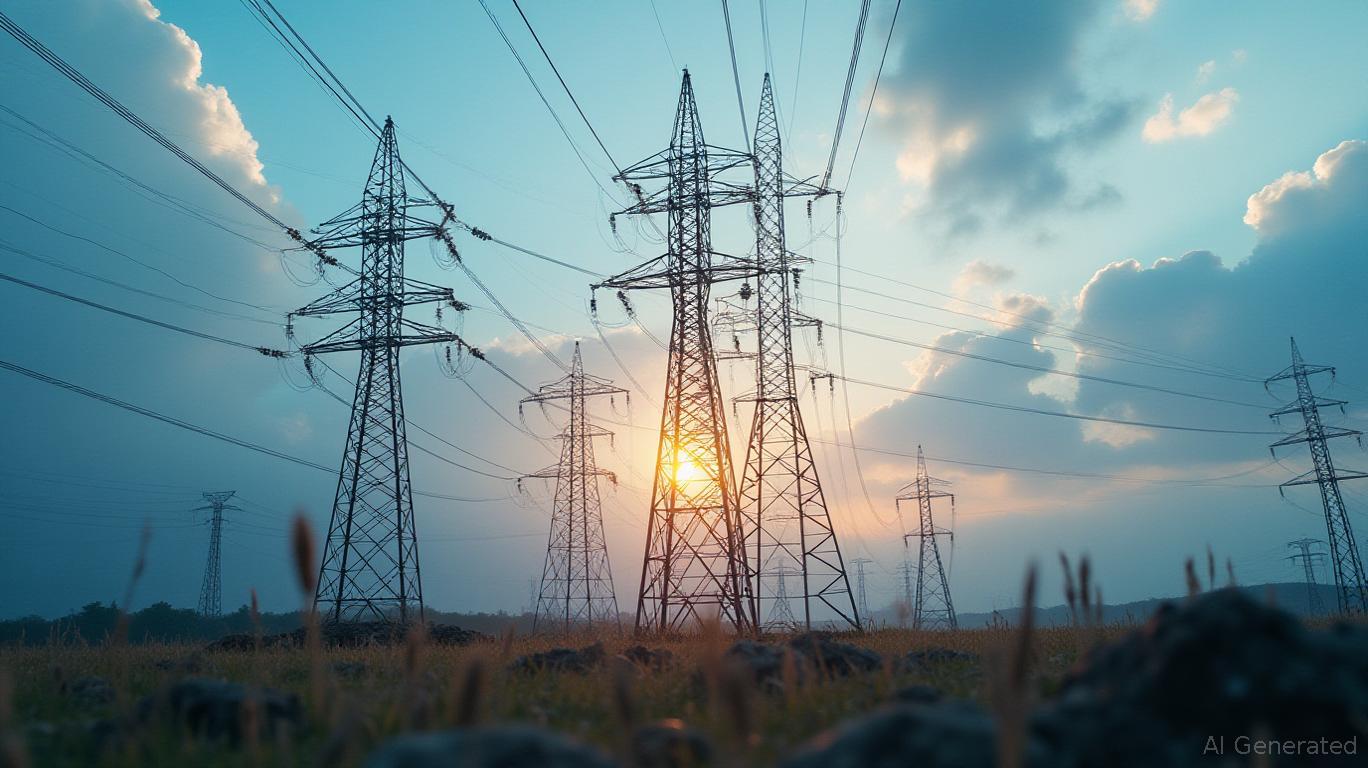Bitcoin Updates: Japan Utilizes Bitcoin Mining to Balance Power Grid with Excess Renewable Energy
- Japan becomes 11th nation to integrate Bitcoin mining into public infrastructure via a 4.5MW project led by a state-owned utility and Canaan Inc. - The initiative uses surplus renewables to stabilize the grid with Canaan's hydro-cooled miners, aligning with Japan's energy efficiency and crypto policy reforms. - Canaan's A16XP miner (300TH/s at 12.8J/TH) highlights energy-efficient hardware adoption, supporting Japan's "clean crypto" strategy and global mining expansion plans. - The project reflects Japan
Japan has become the world's 11th nation to incorporate

This development builds upon previous trials by Tokyo Electric Power Company (TEPCO), the nation's largest utility, which in 2024 experimented with small-scale Bitcoin mining to make use of surplus solar and wind power, as reported by
Canaan's involvement highlights its recent progress in mining technology. The company has introduced its Avalon A16XP air-cooled miner, capable of delivering 300 terahash per second (TH/s) at an efficiency of 12.8 joules per terahash (J/TH), according to
Japan's entry into government-supported mining is part of a wider set of digital asset reforms, which include proposals to treat cryptocurrencies as financial products and introduce a 20% capital gains tax, according to
This project also mirrors evolving economic and geopolitical goals. With Prime Minister Sanae Takaichi prioritizing inflation management and fiscal responsibility, the initiative supports efforts to diversify energy sources and attract global investment. Separately, Yokohama-based infrastructure company PTS has launched a Japan-based Bitcoin mining investment product on Republic's platform, giving accredited investors access to professionally managed mining operations under U.S. securities rules, as noted by
Nonetheless, critics point out possible inconsistencies in Takaichi's approach, which attempts to balance anti-inflation policies with increased defense budgets and fiscal stimulus. While the mining project is energy-efficient, it may face criticism if it is seen as diverting resources from other economic needs.
As Japan joins nations such as Iran and Russia in state-backed Bitcoin mining, the outcome of this venture could shape international views on the role of crypto in energy management. Canaan CEO Nangeng Zhang highlighted the scalability of the project, with plans to extend similar grid-interactive mining initiatives to Asia, North America, and Europe by 2026. For now, Japan's decision reflects a practical adoption of Bitcoin as both a financial instrument and a means of energy innovation.
---
Disclaimer: The content of this article solely reflects the author's opinion and does not represent the platform in any capacity. This article is not intended to serve as a reference for making investment decisions.
You may also like
Privacy Coin Market Surges as Capitalization Hits $24 Billion
Solana Price Falls Despite SOL ETFs Reaching $500 Million
Web3 Focuses on Tangible Proof Over Popular Metrics
Bitcoin Enters Strong November Trend Despite Previous Losses